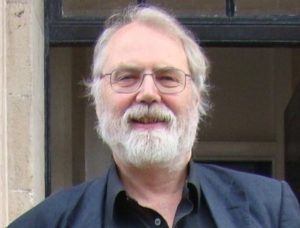The Pali Text Society is pleased to announce that the 20th I.B. Horner Lecture will be given by Dr Aleix Ruiz Falqués, Shan State Buddhist University/Hebrew University of Jerusalem, in Paris on 27th September 2024.
The Lecture will follow the AGM and begin at approximately 5pm Central European Summer Time (UTC+02:00; GMT+2; 4pm British Summer Time; 11am Eastern Daylight Time; 8.30pm Indian/Sri Lankan Standard Time)
This lecture is open to the public, but please note that because of security at the Sorbonne, those wishing to attend the lecture and also PTS members wishing to attend the AGM need to send their names to the PTS administrator Andrew Bishop by email (info@palitextsociety.org) by 18 September, otherwise access to the building cannot be guaranteed.
In order to attend the lecture virtually, please follow this link.
*Please be advised that we are unable to ensure the reliability of the technology in advance of the lecture and therefore cannot guarantee that it will work. We apologise in advance for any inconvenience.*
Organic Pali Grammar
Makāralopa’s Encyclopedia of Pali Grammar: A Burmese 18th-century Manual for Pali Students
The study of Pali grammar is, without doubt, a cornerstone of Theravāda monastic education. Beginning with ancient treatises such as the Kaccāyana (ca. 6th century CE), works on Pali grammar have proliferated across the Theravāda world over the centuries. Some of these treatises are still used in Theravāda countries, but they have not received substantial attention from western Pali scholars. This lecture will examine one such treatise, namely, a Burmese handbook for beginners known as the Encyclopedia of Pali Grammar. It was written by an 18th-century polymath, Makāralopa (ca. 1722–1780), perhaps the most celebrated genius of his epoch. He wrote 37 books on both mundane and supramundane subjects. Makāralopa’s Encyclopedia of Pali Grammar consists of a bilingual Pali-Burmese re-arrangement and exposition of the Kaccāyana grammar. Importantly, it also incorporates chapters on hermeneutics and scholastic exegesis. It is therefore not a mere formal introduction to Pali as a language, but rather a method of textual analysis for those who wish to analyse the Tipiṭaka and the commentarial literature. In Makāralopa’s book, grammar, philosophy, metaphysics and poetry are parts of one single ‘organon’. The fact that this 18th-century manual is still considered a useful handbook in Burma is testimony to the vitality of the ancient grammatical tradition of Pāṇini, Patañjali and other Indian masters in today’s Buddhist world of Southeast Asia. This critical examination of Makāralopa’s Encyclopedia will also be an opportunity to reflect on the implicit assumptions in Pali learning methodologies, past and present.

